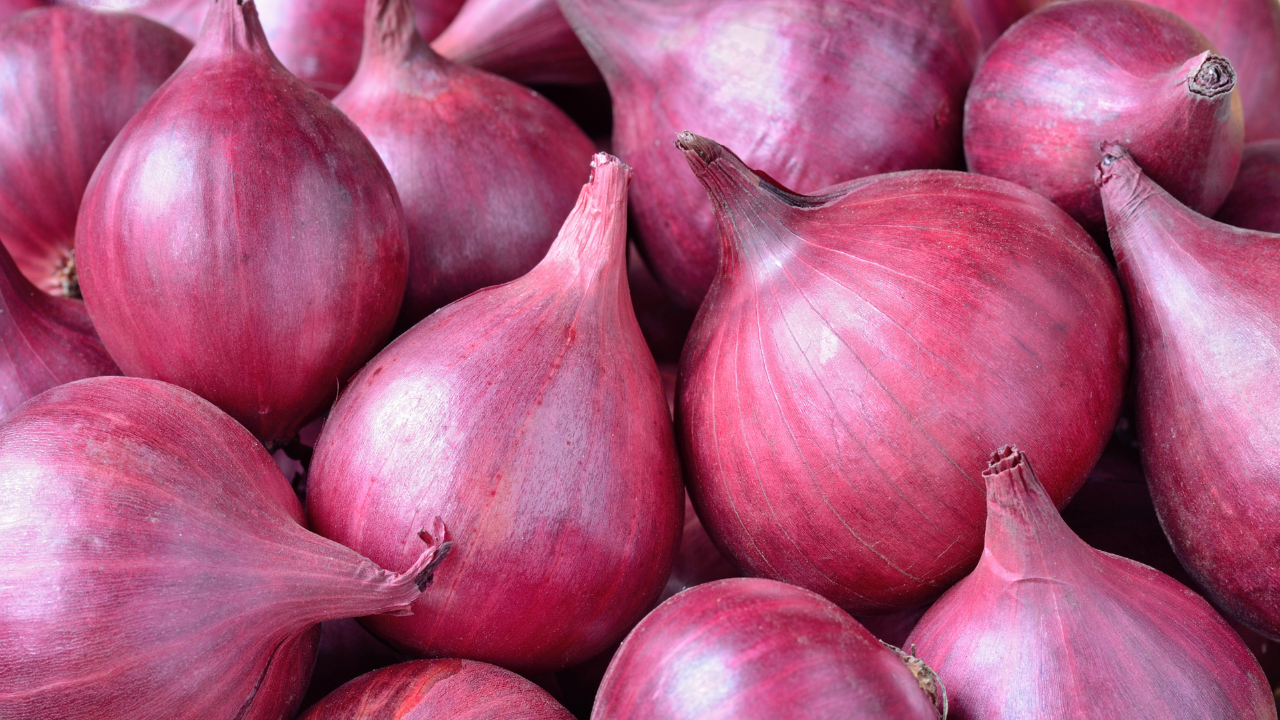
[ad_1]
“We wish to guarantee farmers that their concern will probably be taken care of. …We’ll start procurement of 5 lakh tonne of rabi (winter) crop within the subsequent 2-3 days for sustaining a buffer inventory,” Client Affairs Secretary Rohit Kumar Singh informed reporters.
The onion export ban is affecting merchants and never farmers as common mandi (wholesale) costs are ruling at the moment at round Rs 13-15/kg in Maharasthra, which is nearly double from the earlier yr degree, he mentioned.
“Even when costs crash, we’ll defend the curiosity of farmers,” he added.
The secretary mentioned the federal government usually buys onion for the buffer inventory at a prevailing mandi charges. Nevertheless if the charges fall under the price of manufacturing, the federal government will guarantee their value is roofed at the least.
In 2023-24, the federal government had procured 6.4 lakh tonnes of onion (each rabi and kharif crops) for the buffer inventory at a median price of Rs 17 per kg. Virtually complete amount has been disposed off, he mentioned. Nidhi Khare, Officer on Particular Obligation within the Client Affairs Ministry, mentioned the onion procurement over the past yr was carried out in June however this yr it’s going to kick-start early within the subsequent two days. Two nodal cooperative businesses — Nafed and Nationwide Cooperative Shoppers’ Federation of India (NCCF) — will undertake procurement, she mentioned.
For the procurement, NAFED and NCCF are to pre-register the onion farmers to make sure that funds to the farmers are transferred to their financial institution accounts by Direct Profit Switch.
In regards to the impression of doubtless fall in rabi onion manufacturing on retail costs, the secretary mentioned the typical retail costs are at the moment steady at Rs 33/kg within the nation.
The federal government has chalked out an motion plan to deal with the supply-demand hole in two methods. The federal government is testing bettering shelf lifetime of 1,322 tonnes of onion by radiation remedy, and secondly farmers in key rising areas will probably be inspired to develop early kharif crop topic to climate circumstances, he mentioned.
Rabi onion manufacturing is estimated to say no by 20 per cent to 190.5 lakh tonnes within the 2023-24 season (July-June), as towards 237 lakh tonnes within the year-ago interval as per the agriculture ministry information.
Rabi onion is important for nation’s onion availability because it contributes 72-75 per cent of annual manufacturing within the nation. The rabi onion can also be essential for making certain year-round availability of onion because it has higher shelf life in comparison with Kharif (summer season) onion and may be saved for provides until November-December.
In a separate assertion, the buyer affairs ministry mentioned the current determination to increase onion export prohibition has been necessitated by the general home availability towards the prevailing worldwide costs and world availability issues.
The federal government, in the meantime, has allowed exports to neighbouring international locations that depend on India for his or her home consumption necessities. The federal government has allowed the export of onion to Bhutan (550 tonnes), Bahrain (3,000 tonnes), Mauritius (1,200 tonnes), Bangladesh (50,000 tonnes) and UAE (14,400 tonnes i.e. 3,600 tonnes/ quarter).
The ministry additionally talked about that the continual procurements by NAFED and NCCF have assured remunerative costs for onion farmers all by the yr in 2023. Subsequently, the federal government adopted retail sale intervention for disposal of onion at backed value of Rs 25 per kg final yr.
“The well timed intervention and calibrated launch ensured stabilization of retail costs successfully with out impacting farmer realization,” it added.








